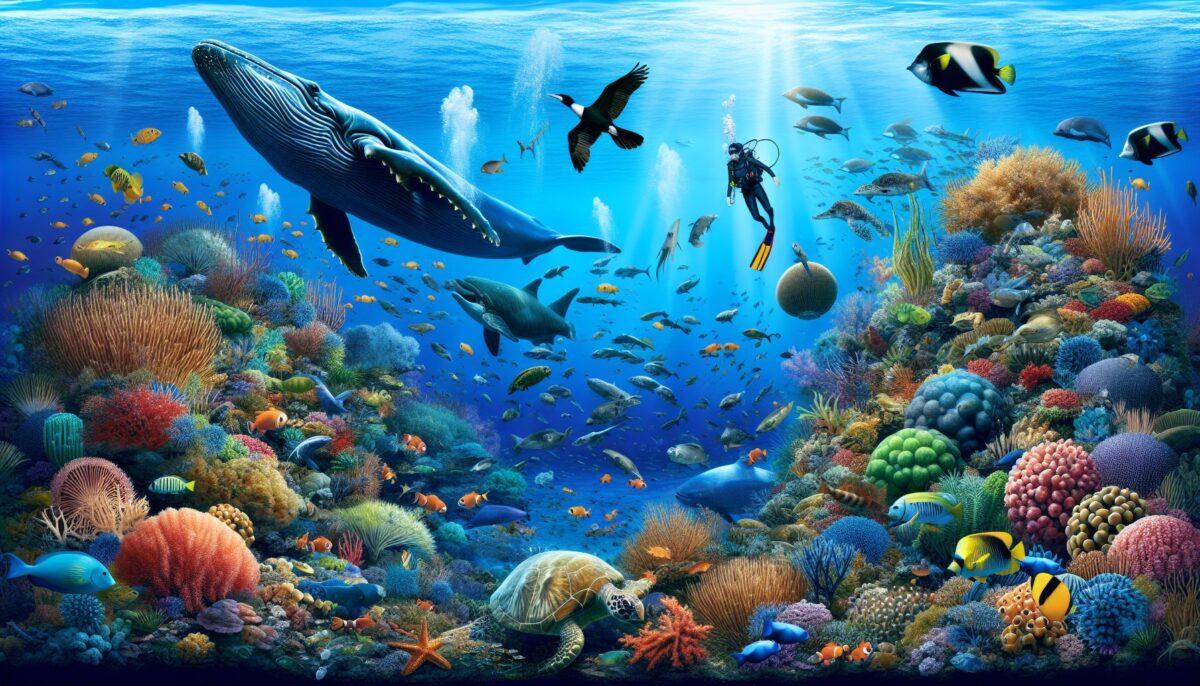Unfolding our Blue Planet: The Significance of Marine Biodiversity
Marine biodiversity, an integral component of our planet’s health, holds colossal significance for the whole of the biosphere. The oceans that span 71% of the Earth’s surface are not just vast water bodies; they are abodes of a multiplicity of organisms. From the smallest microscopic plankton to the largest whale, each creature has a unique role in managing the ocean’s intricate, balanced ecosystem. Marine biodiversity is the backbone of numerous ecosystem services that our society relies upon [1].
The Profound Marine Life
Oceans aren’t only a source of inspiration with their sempiternal beauty, they constitute an extraordinarily diverse biota. The existence of life ranging across tremendously varied habitats like sunlit coral reefs, the dark abyss of deep-sea, serene estuaries, challenging arctic sea ice, bustling kelp forests, and vibrant coastal marshes confirms the opulence of marine biodiversity. This variety of life forms in the oceans exhibits a delightful spectacle of evolutionary novelty [2].
Benefits of Marine Biodiversity
Marine biodiversity carries economic, ecological, and scientific value, amongst which are:
-
Economic: Oceans contribute significantly to economies worldwide by stimulating coastal tourism, supporting commercial fisheries, and other aquaculture practices. Notably, healthy marine ecosystems sustain these economic activities.
-
Ecological: Marine species offer crucial ecological services; they help in nutrient cycling, oxygen production, climate regulation, and provide natural defense against coastal erosion and storms.
-
Scientific: With numerous species yet undiscovered in the ocean depths, marine biodiversity holds enormous potential for biotechnological innovations and medicinal discoveries.
Threats to Marine Biodiversity
Despite its significance, marine biodiversity faces severe threats. Human activities like overfishing, habitat destruction, pollution, introduction of invasive species, and climate change have adverse impacts on marine ecosystems. Ocean acidification due to escalated carbon dioxide levels is causing widespread coral reef bleaching, thereby upsetting the delicate balance of marine biodiversity [3].
Conservation
Given these challenges, the conservation of marine biodiversity becomes paramount. Implementing marine protected areas, enforcing stricter regulations on overfishing and pollution, and raising awareness about the importance of marine biodiversity are some steps toward its preservation.
The extensive and thriving life beneath the ocean waves is a precious treasury of our planet. A deeper understanding of marine biodiversity can help us conserve it and benefit from its bounty in a sustainable manner. Let us strive to respect and preserve the oceans, our life-sustaining, blue heart.
References
